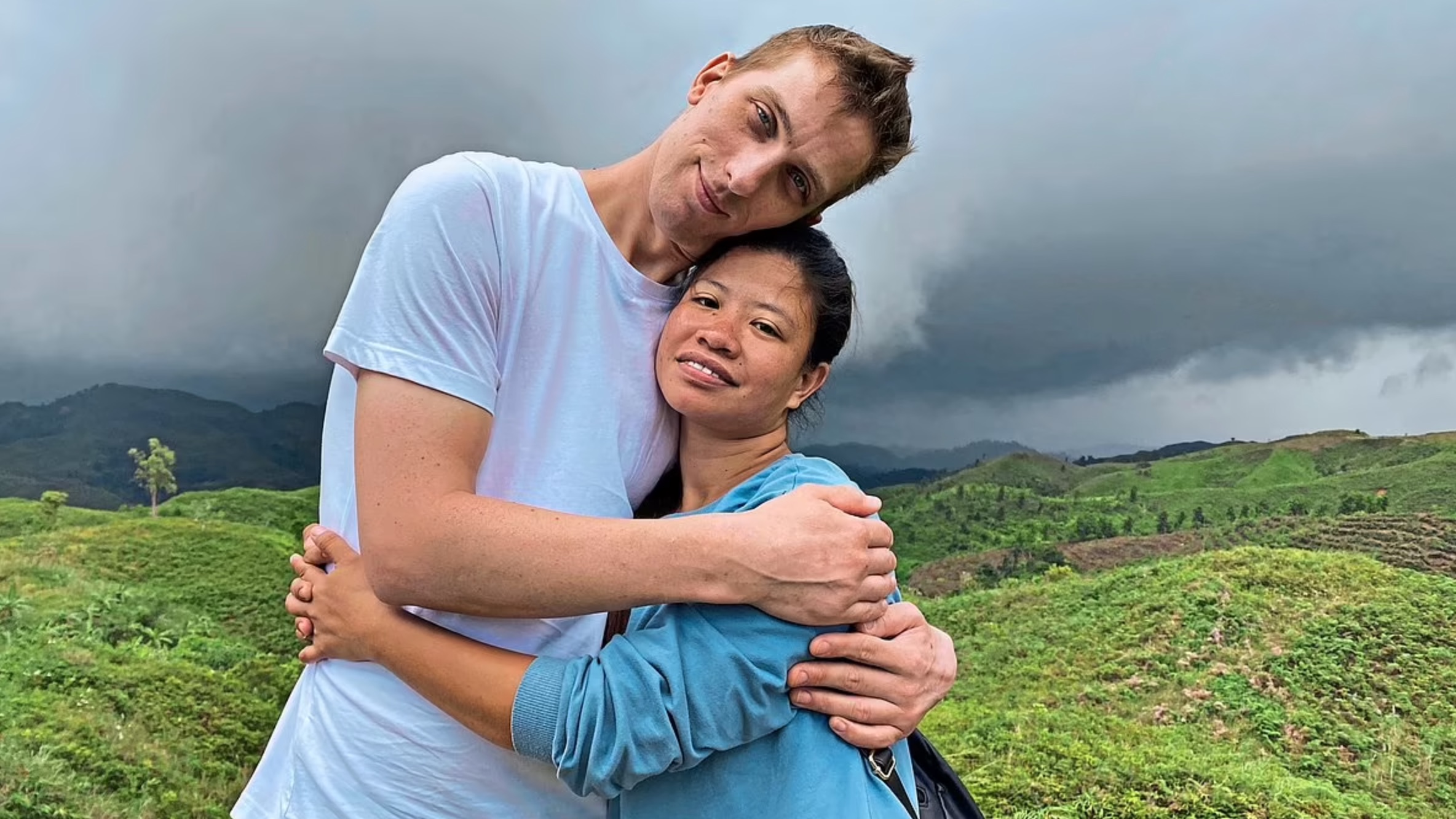In a virtual age, the real is much too real. What if we could dispense with the minor irritations of relationships and keep only the romance, the thrill, the promise? Total transparency demands that nothing is held back, but what if there were a way to prolong the fantasy?
Virtual relationships — let us not yet say with the virtual, though some have already fallen in love with their AI therapist — those undertaken at a distance, through a screen, are in some ways perfect because they remain uncontaminated by the full overwhelming reality (and perhaps horror) of the other. One can fall in a kind of refracted, isolated love with a kind face, a beautiful voice, or even with someone’s writing. There’s hope for us all.
Increasing numbers of couples who meet online, through social media or message boards, have often been “together” for years, sometimes thousands of miles apart, without physically meeting. A new programme from Channel 4, The Nevermets, asks how valid these partnerships are, and seeks an old-fashioned resolution to the one-sided intensity of the virtual relationship.
The premise of the show involves filming the first real-life encounter of several virtual couples. Thus we have Jay and Veena, from Somerset and India; Sarah and Jgoy, from Berkshire and the Philippines; Dumebi and Mazi, both Nigerian, but the former from London and the latter living in Dubai. They cross continents to see if IRL can possibly match the idealised images each has formed of the other — and perhaps of what the other can give them. For unemployed Sarah, this involves an escape from her loneliness. Veena wants marriage while 17-year-old Jay wants a first girlfriend. For Jgoy, who knows — but sex at the very least, if not a visa.
Yet what’s more striking than any romantic resolution is how expectations around the world — whether Western or Eastern, rich or poor, male or female, young or old — have become so similar. These are relationships enabled and mediated by the internet, but they are also relationships of people shaped by the internet. In some ways, the virtual pairs are more intimate than even the closest of marriages: what married couple speaks to each other non-stop for ten hours a day?
Veena is a charming social-media worker in her late twenties whose success has bought a large house for her family in Kerala, but she has thus far refused to get married despite the weight of tradition, manifested in the form of her relentless and apparently infinite relatives. Her younger beau Jay, a sweet and floppy-haired boy from Bridgwater who loves sausage rolls, somehow seduced her via the medium of Game of Thrones fan fiction. Envisaging a life together watching Netflix and gaming, Veena is an extremely modern character — highly motivated, with a life plan that sits at odds with what she calls “old thinking”.
The show, as these things go, is the usual mixture of drama, misunderstandings, awkward encounters and to-camera confessions. “My brain’s in screenshot mode at this point,” says Jay as he rides a tuk-tuk to Veena’s family. The latter has considerately installed a toilet roll holder, complete with roll, to cater to Jay’s culturally specific needs. We see the couples as they navigate things as vexing as the other’s (previously unknown) height. These are obviously not arranged marriages, yet in place of the meddling auntie we have the all-seeing algorithm, mediating and filtering out the unsuitable.
It would be too easy to dismiss the possibility of in-person love following a long-distance courtship: after all, many relationships after the two world wars blossomed through letters to and from the front. But what ultimately constitutes romantic love remains a mystery, perhaps because what occurs takes place in a liminal zone between the chemical, the fantastical and the gestural. One falls in love with a flick of the hair, the movement of hands, a gait. One can love an online voice, a writing style, a particular video, but the process in which love of a part becomes commitment to a whole remains, we hope, beyond the ken of any computer.
The now-proximate couples in The Nevermets are alternately sweet, sad, mildly delusional and mismatched in age and temperament. Yet the viewer feels for the parts of them that fell in love with other parts, without considering the whole.










Join the discussion
Join like minded readers that support our journalism by becoming a paid subscriber
To join the discussion in the comments, become a paid subscriber.
Join like minded readers that support our journalism, read unlimited articles and enjoy other subscriber-only benefits.
Subscribe